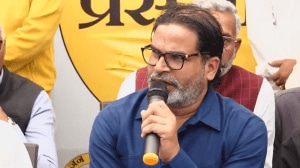Mumbai hit by bankers’ strike
MUMBAI, Jan 12: Banking operations across the metropolis came to a grinding halt on Tuesday as about one lakh employees under the banner ...

MUMBAI, Jan 12: Banking operations across the metropolis came to a grinding halt on Tuesday as about one lakh employees under the banner of the United Forum of Bank Unions (UFBU) struck work demanding 20 per cent wage hike as against 8 per cent offered by the Indian Banks Association (IBA).
The nation-wide strike was called to protest the “rigid and anti-labour” attitude of the IBA in revision of wages of the bank employees. A United Forum of Bank Unions (UFBU) statement claimed the strike was “total and peaceful,” even as IBA secretary M N Dandekar said it failed to evoke “good response” from officers.
Bankers said cheque clearances in the city were affected. Although foreign exchange market market was open, activity was limited with foreign banks and cooperative banks doing minimal business.
The officers and employees after staging demonstrations before their respective branches in the Fort areas, proceeded towards the Azad Maidan for participating in a rally organised by UFBU.
Reports fromother states indicate that bank employees had joined the one-day strike en masse, paralysing bank operations. No business could be transacted as all sections of employees, including officers, participated in the strike, the UFBU statement said. The day was marked with demonstrations and morchas organised by the bank unions all over the country.
Barring the Reserve Bank of India, rural banks and the cooperative banks — which were kept outside the purview of the strike — shutters of the State Bank of India and its associates, nationalised and private banks remained down. The clearing house operation remained paralysed throughout the country.
The UFBU, consisting of all main-line unions and officers’ associations cutting across the political affiliations, has rejected the IBA’s offer of eight per cent increase in wages with prospective effect. The bankers’ body, however, refused to yield to the unions’ demands and issued a take-it-or-leave-it note saying the offer could not be revised upwards. The lastwage agreement had expired in October 1997.
The UFBU is meeting on January 19 to take stock of the situation and chalk out the next course of action. According to union sources, the plan is to step up the agitation programme. “We may even go for an indefinite strike if the IBA continues with its rigid stance,” a All India Bank Employees Association (Aibea) leader said.
Trading was thin in the foreign exchange markets and there were hardly any transactions in the overnight call market. However, certain foreign banks and private and cooperative banks continued their operations.
In all probability, the unions will step up the agitation programme and may even go for an indefinite strike. The IBA’s tough stand is due to fact that the industry is in a bad shape and hence cannot afford a higher wage hike. But UFBU says that while the operating profits of banking industrry has gone up from Rs 10,149 crore to Rs 14,623 crore, the offer of 8 per cent hike given by IBA is unreasonable, hence, unacceptable toUFBU.
In fact, at the very outset, the IBA had offered to dismantle the traditional industrywide wage pact and settle for bank-specific pacts. That would have given the employees of the stronger banks an opportunity to work out better packages. However, afraid of losing their collective bargaining power, bank unions decided to protect the sanctity of the industry-wide wage pact.





- 01
- 02
- 03
- 04
- 05


























